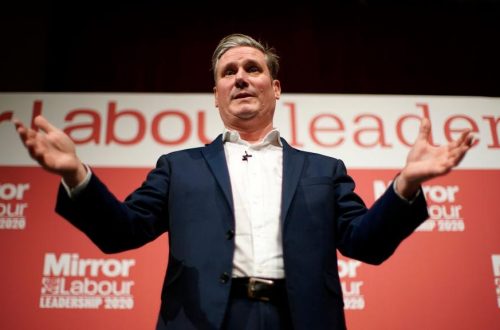[Cross posted to CommentisFree]
In the thread below, a commentator argues:
“The main reason that [the] Government still insists on seeing Muslims as a separate community whose primary loyalty is to their faith is because that is what they themselves keep telling us all that they are.”
That is certainly what some groups say: but not all of them. Fear of a secretive “fifth column” of jesuitical fanatics is a fairly long established feature of British political consciousness – and we should be naturally suspicious of such arguments – but they are not what should really be concerning us most. Indeed, we shouldn’t be surprised that the sort of people who organise into campaigning groups on the basis of their faith or some other aspect of their identity, and offer themselves to Government and the Press have such a narrow conception of who they are. Pressure groups based around identity politics typically contain people who suffer from tunnel vision: because that is what motivates them to give up their spare time to a cause which offers little by way of material reward.
People who don’t define themselves principally or exclusively in terms of their faith, or one particular conception of their faith do not typically think like this at all. By their nature, they are rarely organised into groups. Consequently, we rarely hear their voices.
It worries me, to some extent, that Muslim political groups which are strongly influenced by Mawdudist and Muslim Brotherhood ideology have managed to leverage the aftermath of terrorism in order to advance their own political profile, to partner with the Government and other prominent politicians, and to monopolise the megaphone of public discourse. My feeling, however, that the press and Government have had something of a crash course on Islamist political philosophy in the last 12 months. I doubt that many of the self-appointed community leaders will be getting quite such an easy ride as they had in the immediate aftermath of 7/7.
What concerns me more is this. Groups like MPAC, the MAB, and many in the MCB push Ummah-consciousness hard. They know that the most effective way to create that consciousness is to peddle the ‘Global War Against Muslims’ discourse.
Once the notion that Muslims, everywhere, are bound together as victims of a global millenial battle which is being fought against their brothers and sisters everwhere – with a single cause and a single solution – has taken hold of the imagination of a generation, it is going to be VERY difficult to fight against. Membership of a Brotherhood of the Persecuted is the strongest identity of all. The message of those who peddle this lie is: “now that we’re all under attack, you’re with us, whether or not you want to be”. The Brotherhood of the Persecuted is much stronger than an identity based around neighbourhood, work, and other common interests. It is much stronger – dare I say it – than a class identity.
The notion of Muslim victimhood is difficult to engage with: because it has an amoeba-like quality. It does not require British involvement in foreign wars in order to take hold. British Muslim students in the 1990s were radicalised with images of suffering in Bosnia, Chechenya and Palestine. It is insensitive to the suffering of Muslims at the hands of other Muslims: as Afghanistan, Iraq and Sudan have shown. In that sense, it dovetails nicely with the idiot “anti-imperialist” discourse of the left, and is reinforced by demagogic and self-serving politicians and by hysterical newspapers. And unlike the Troubles in Ireland, it will not end with the cessation of hostilities in a particular conflict: but will shift its focus from one grievance to another.
If a generation of Muslims grow up convinced that they are disempowered, exposed, and assaulted: and that everything from the Forest Gate cock up, to Chechnya is an aspect of a single battle being fought against them – personally – an entire generation is in danger of being lost.
One of the reasons that I have so little interest in Muslim-baiters who quote from the Quran in an attempt to prove the intrinsically warlike nature of Islam is that these arguments miss the point. The simple notion of Muslim victimhood – an identity of a brotherhood of suffering – is what is being pushed, primarily: not a detailed exegisis of theological texts. Shehzad Tanweer was no bookish religious scholar: he was a Sports Science graduate. What hooked him in, and what will hook a generation in, is an ideology which convinces Muslims that they are under attack, personally, in this country, and all over the world.
The danger we face is not just that more Tanweers will be recruited. It is that our communities will lose the fragile basic level of cohesion which a pluralist and diverse society requires. We can survive the bombings: but we cannot survive if we grow apart from each other.
So, where do we go from here?
I don’t know. But a start might be the following:
– We must promote, confidently, a sense of ourselves as friends, compatriots, and neighbours: a vision which is capable of challenging the simplistic and reductionist notion of a worldwide brotherhood of suffering Muslims.
– We must stop treating Muslims as a monolithic group, and must insist that politicians stop treating with self appointed ‘community leaders’: particularly those from a Muslim Brotherhood or Jamaat background.
– We must actively challenge the narrative of Muslim victimhood.
Any other suggestions? And how do we do it?
UPDATE:
Oh, and make a special point of reading Sunny’s article on CiF.
It is the sunnier (ho ho!) version of this article in many ways.


